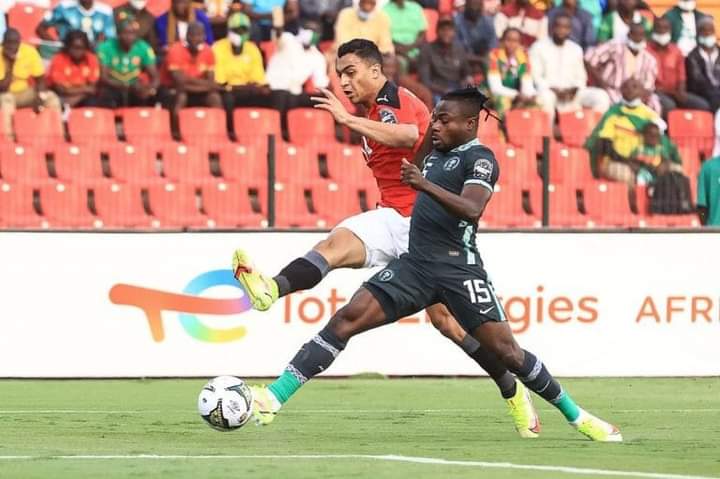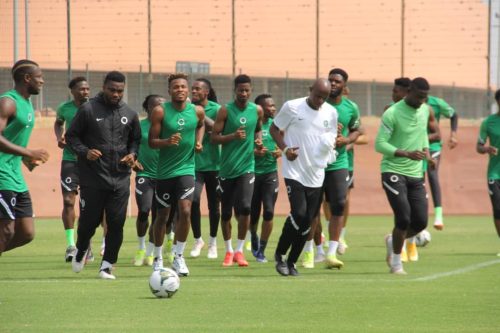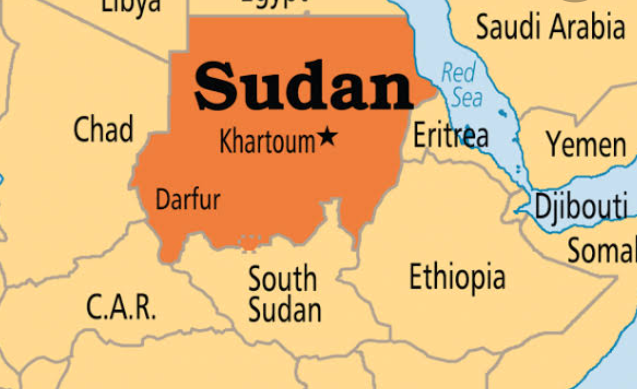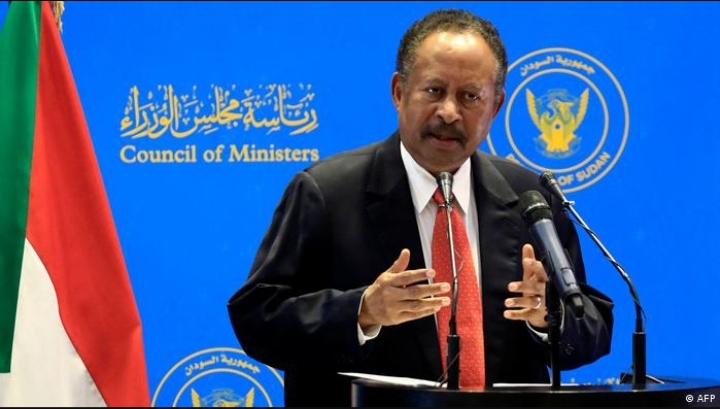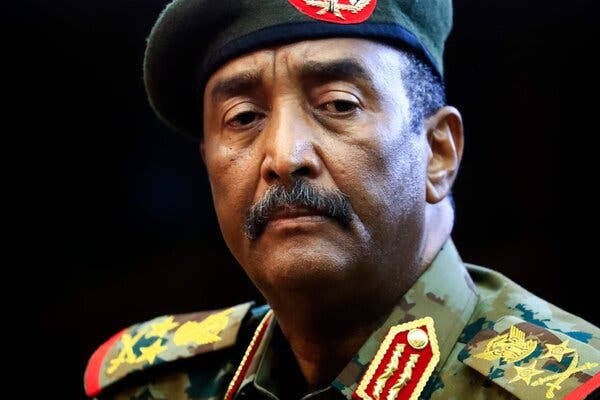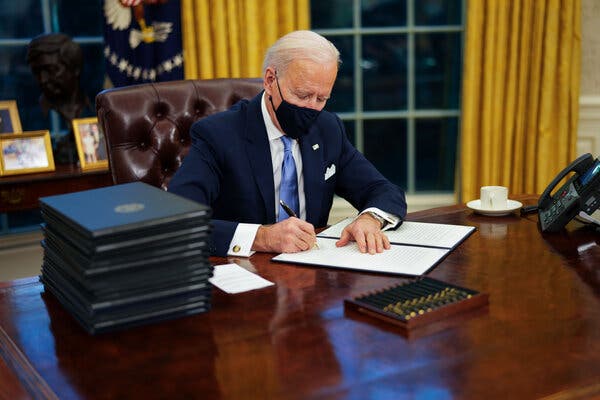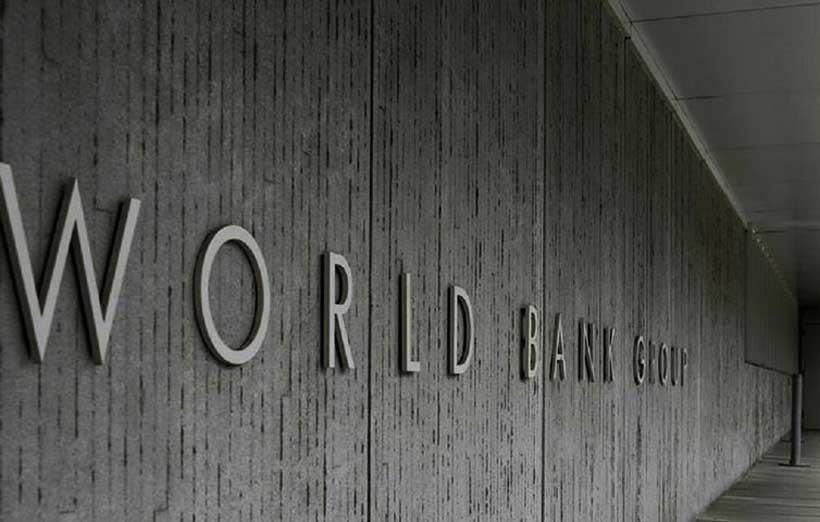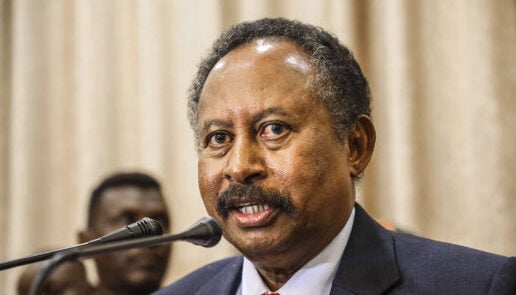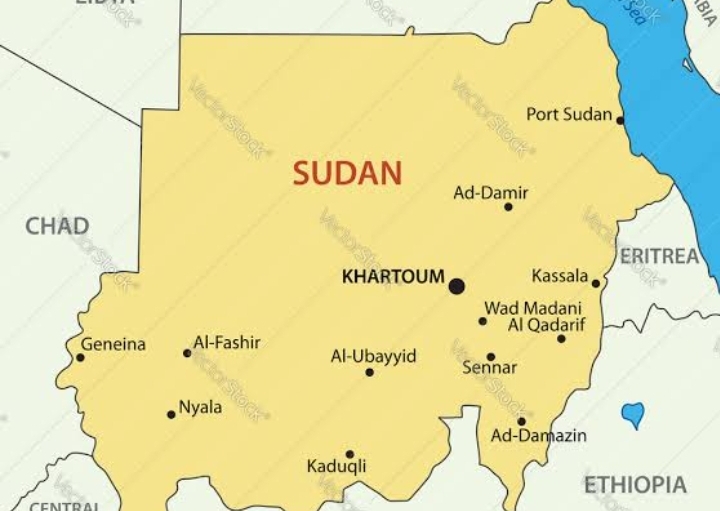Until it was displaced to the third position by Algeria and the Democratic Republic of Congo (DRC), Sudan was Africa’s undisputed largest country. The change in position was occasioned by the Independence of South Sudan in 2011. Back in August 1955, about four months before the country’s Independence from British colonial rule on January 1, 1956, the Christian and pagan people of the South rose up in arms against the Muslim and Arabized people of the North, alleging racial discrimination and political marginalization. The ensuing 55-year struggle culminated in Independence for the South on July 9, 2011, although the nascent republic has been at war with itself since 2013.
The political forces of ethnocentrism, Islamic fundamentalism, and anti-secularism that blended themselves into a witch’s brew to split Sudan into two different national entities – North and South, also combined to ensure that rump Sudan (North) presently holds the unenviable record of the African country with the highest number of military coup plots – successful or otherwise.
General Abdel Fattah al-Burhan’s October 25, 2021 coup, which toppled the country’s civilian-military diarchy – the Sovereign Council of Sudan, headed by himself and Mr. Abdallah Hamdok as Chairman and Prime Minister respectively, brings the total number of Sudan’s coup plots to an unrivalled eighteen. And, as history suggests, this latest coup will certainly not be the last in a country reputed for being the second in post-colonial Africa to have experienced a military overthrow of government, after Egypt.
Since Independence, Sudan’s military has been enmeshed in the struggle for national dominance between the aforesaid forces of ethnocentrism, Islamic fundamentalism, and anti-secularism on one hand; and the forces of secular democracy on the other hand. Hence, military coups and counter-coups are veritable tools for power acquisition and consolidation on the part of the contending forces. In this light, General al-Burhan’soverthrow of the Sovereign Council of Sudan can be seen as a move aimed at bolstering the sagging fortunes of Islamic fundamentalists and anti-secular forces, against the growing influence of secularists and democratic elements led by Prime Minister Abdallah Hamdok.
The Sovereign Council of Sudan was formed on August 20, 2019 in a power-sharing deal between civilian protest groups under the umbrella of the Forces for Freedom and Change (FFC), and the armed forces under the banner of the Transitional Military Council (TMC), in the aftermath of popular street protests that occasioned the downfall of sit-tight dictator Omar al-Bashir in April 2019. It was mandated to lead the country through a 39-month transition that would usher the country into full-fledged civilian rule by November 2023. General al-Burhan was required to hand over its chairmanship to a civilian in November 2021 upon expiration of his 21-month tenure, while the new chairman would lead through the remaining 18 months of the transition.
Realizing that the end of his chairmanship tenure was at hand, and thus the loss of his powers, General al-Burhandecided to militarily overthrow the civilian-military diarchy. On October 16, 2021, he stage-managed a protest that demanded the ouster of the Sovereign Council and the imposition of military rule upon the country. The protesters comprised mainly supporters of Mohamed Hamdan Dagolo aka Hemetti, the Deputy Chairman of the Council and a former commander of the notorious Rapid Support Force (RSF), which maintains close links with the murderous Janjaweed militia responsible for acts of genocide and crimes against humanity in Darfur.
Sudanese secularists and democrats were not fooled by General al-Burhan’s deceptive moves, and on October 21, 2021, they staged anti-military rule counter-protests across the country. By October 25, 2021, it dawned on the wily General that his ruse had failed, hence he resorted to the Maoist dictum: “Power flows from the barrel of the gun.” Although Prime Minister AbdallahHamdok and his allies saw the coup coming, there was little or nothing they could do about it, for in the unstable democracies of the Third World, those who control the state’s instruments of coercion, control state power.
In a manner typical of Africa’s predatory military opportunists, General al-Burhan has been parroting the usual phrases of “national instability” and “avoidance of civil war” as excuses for his callous usurpation of power. Consistently, he has failed to explain why he chose to oust the diarchical government barely a few weeks before he was due to relinquish its chairmanship to a civilian; and also, why he did not deem it necessary to channel the military resources that enabled his coup towards the protection of the government that was supposedly under threat from the forces of “national instability.”
Amusingly, General al-Burhan has promised to abide by the transition programme of the Sovereign Council he has sacked. He has also vowed to hold general elections in July 2023 as scheduled. But, in the characteristic fashion of Africa’s military usurpers of power who often metamorphose into civilian life-presidents, he is yet to hint at the possibility of civilianizing his junta in course of implementing the transition programme. Perhaps, he is still studying the playbooks of the likes of Egypt’s Abdel Fattah el-Sisi and Equatorial Guinea’s Teodoro Mbasogowho recently broke Colonel Gaddafi’s record of a 42-year civilianized military dictatorship.
As events surrounding General al-Burhan’s coup unfold, keen observers cannot help recalling the pungent anti-military coup lyrics of the legendary Nigerian Afro-beat musician, Fela Anikulapo Kutu, who rightly viewed the incessant military coups in Africa as a matter of “Soldier Go, Soldier Come,” while also berating the junta rulers as “Vagabonds in Power” who aid and abet the underdevelopment of their various countries and the entire continent. Beside his country, Nigeria, where nine military coup plots have occurred since Independence in 1960, Fela may have had at the back of his mind the coup-plotting proclivities of Sudan’s military force.
The scourge of military coups in Sudan began barely two years after its Independence, when Prime Minister Ismail al-Azhari was overthrown by General Ibrahim Abboud on November 17, 1958. The coup marked the second military overthrow of a government in Africa – the first being the 1952 overthrow of King Farouk I of Egypt by the Free Officers Movement. A professional Mathematics teacher, al-Azhari had failed to effect proper political calculations in the face of a deepening ethno-religious schism between the predominantly Muslim North and Christian-pagan South.
Amidst intensifying Arabization and Islamization of the South, General Abboud was forced to hand over the reins of power to interim Prime Minister Sirr al-Khalifa inOctober 1964, but the former colonial civil servant soon found out that he was incapable of handling the North-South divide, hence he quickly handed over power to elected Prime Minister Mohammed Mahjub in June 1965. Mahjub was also forced to resign in July 1966, but he staged a comeback in May 1967, only to be overthrown in a military coup led by Colonel Mohammed Gaafar al-Nimeiry on May 25, 1969.
Al-Nimeiry declared Sudan an Islamic state and imposed Sharia law on the entire country in September 1983, prompting South Sudan’s main rebel group – the Sudanese People’s Liberation Army/Movement (SPLA/M) to intensify its armed struggle, and in April 1985 he was overthrown by General Suwar al-Dahab, who promptly relinquished power to elected Prime Minister Sadiq al-Mahdi in April 1986. The government of al-Mahdi was sacked by Colonel Omar al-Bashir on June 30, 1989.
Omar al-Bashir’s 30-year rule is a study in contrast. He institutionalized Sharia Law in the Northern part of the country in January 1991, compelling both Muslims and non-Muslims to comply with the Islamic law. In 2005, he negotiated the peace agreement that granted Independence to South Sudan in 2011, succeeding where others had failed. In 2003, he escalated the ethno-racial crisis in Darfur, leading to his 2009 and 2010 indictmentsby the International Criminal Court (ICC) on charges of crimes against humanity, ethnic cleansing, and genocide.
When popular street protests over rising cost of living, unemployment, and corruption swept through Sudan in late 2018 and early 2019, al-Bashir, like Muammar Gaddafi in 2011, dismissed the protesters as “rats,” urging them to return to their “holes.” Rather than heed his command, the protesters demanded his resignation. Realizing that the sit-tight dictator’s time was up, General Ahmed Ibn Auf toppled his regime on April 11, 2019.
General Auf attempted hijacking the popular revolution by establishing a Transitional Military Council (TMC), but the protesters under the umbrella of the Forces for Freedom and Change (FFC) demanded the installation of a civilian government, forcing Auf to resign as General Abdel Fattah al-Burhan assumed the reins of power. Adamantly, the FFC demanded an immediate transition to civilian rule. Amidst crippling protests and a rising death toll, the TMC and FFC entered into negotiations that paved the way for the formation of the transitional civilian-military diarchy – the Sovereign Council of Sudan on August 20, 2019.
As previously mentioned, the Sovereign Council was dogged by a power–tussle between Islamic fundamentalist elements and their secular opponents. At the heart of the tussle was Prime Minister Hamdok’s resolve to institutionalize a secular Sudanese state in accordance with the terms of the August 31, 2020 peace agreement signed between the Council and rebel groups based in the country’s troubled regions of Dafur, South Kordofan,and Blue Nile. General al-Burhan’s coup poses a direct threat to that agreement.
Meanwhile, across the globe, people are worried about the re–emergence of military coups in Africa, warning that it bodes evil for the continent’s democratization process, especially in light of this year’s coup plots: Niger in March, Chad in April, Mali in May, Guinea in September, and Sudan in October. There is palpable fear that the year may yet end with more of related occurrences.
It is generally acknowledged that a military coup (and the resultant junta) is an aberration legitimized only by its success. Failure in its execution is treasonable and punishable by death in most countries, like Nigeria. Thus, a junta, being the product of an illegal do-or-die military operation, can only operate as a tyranny, and at best, a benevolent dictatorship. Therefore, it should not be tolerated under any guise, especially when its leaders trumpet “national instability” as an excuse for truncating a democratic process.
Taking cognizance of the endemic ethno-religious crises that have rendered Africa a coup-prone continent, and the ethnic chauvinists, separatists, religious bigots, charlatans, etc. who are always baying for violence and blood, it may not be out of place to describe the military in the continent’s fragile democracies as a kettle of vulturescycling the skies over a carrion and waiting patiently for the appropriate opportunity to swoop down for a feast. Sudan’s military exemplifies this description.
▪ Dennis Onakinor is a public and international affairs analyst who lives in Lagos, Nigeria. He can be reached via e-mail at dennisonakinor@yahoo.com
